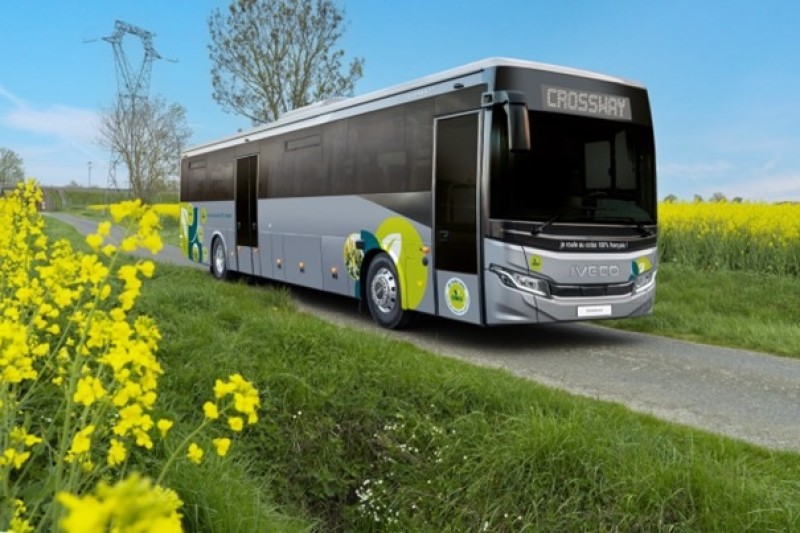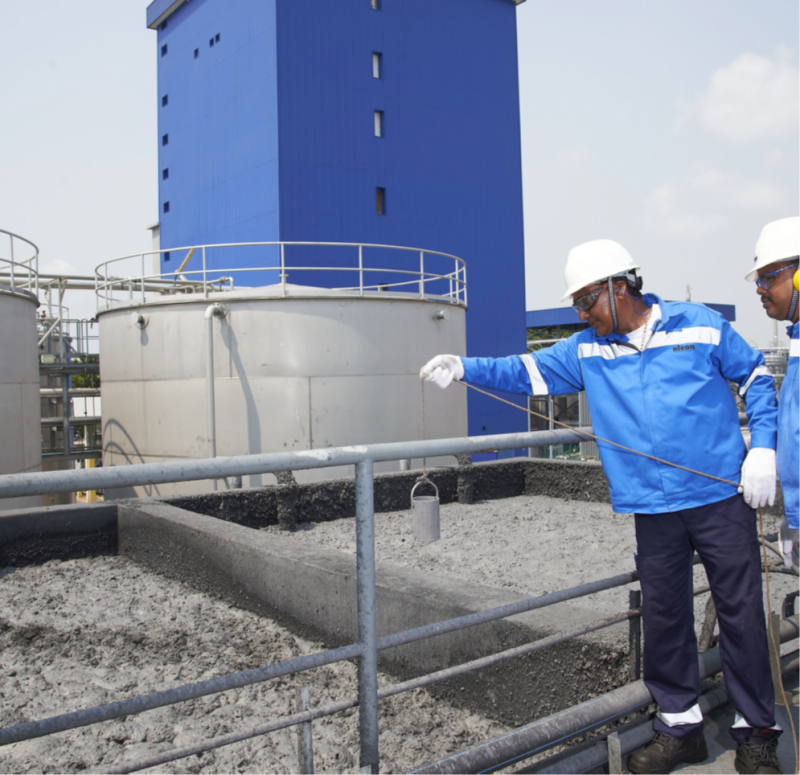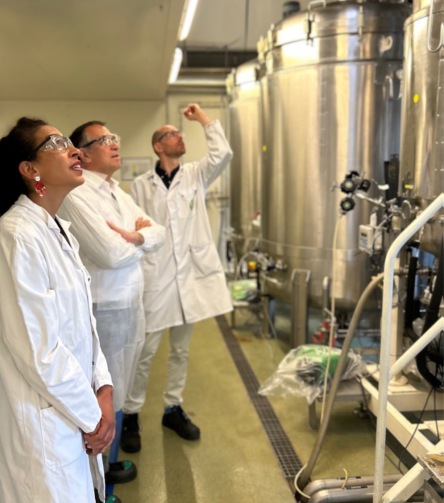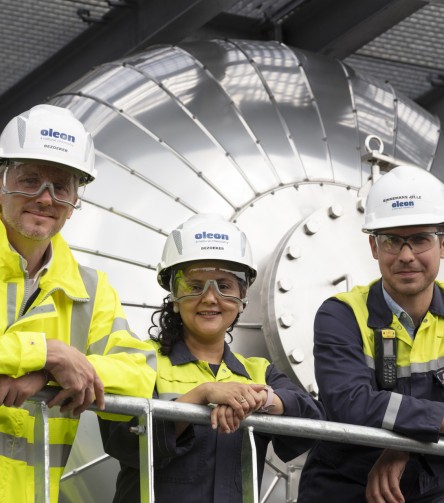Developing low-carbon and sustainable solutions
Copy the URL
Copié vers le presse-papier
Helping our clients reduce their carbon and environmental footprint
To support our clients’ decarbonization efforts, Avril is developing initiatives and solutions to better measure and reduce greenhouse gas emissions across the entire value chain.
Biofuels to decarbonize road transport
Avril continues to expand Oleo100, its B100-type biofuel, to help decarbonize freight and passenger transport with a solution made from 100% French rapeseed. Today, nearly 2,000 tanks have been deployed across France to supply truck fleets.
en chiffres
17,000 vehicles run on Oleo100
- 60% minimum GHG emissions compared to conventional diesel
Contributing to the decarbonization of air transport
Air transport must also accelerate its decarbonization to comply with European and international regulations. Avril is therefore continuing its work with upstream agriculture to develop short-cycle oilseed crops, suited to intercropping and incorporating low-carbon farming practices.
Developing sustainable aviation fuels in Romania
OMV Petrom, the largest energy producer in Southeast Europe, signed a supply agreement with Expur, Avril’s Romanian subsidiary, to provide refined vegetable oil to be used as feedstock in its sustainable aviation fuel production unit.
en chiffres
700,000 T of refined oil produced by Expur under the six-year contract
Solutions for decarbonizing livestock farming
Animal production activities, like agriculture, face a major challenge in decarbonization. The "Ruminant Decarbonization Initiative," launched by Sanders in 2024, brings together nine solutions related to energy use, herd management, and feed practices. It relies on a set of indicators from an innovative tool—the carbonometer—which calculates the total emissions of ruminant farms per liter of milk or kilogram of meat produced.
Displaying the carbon footprint of animal feed
Since June 2024, bulk feed labels for ruminants have included their carbon footprint—specifically, the greenhouse gas emissions (CO₂, methane, etc.) associated with the production of one ton of feed. This indicator takes into account the production of raw materials, their transport to the factory, the manufacturing process, and transportation to the farm.
Continuing our carbon trajectory
In 2024, despite changes to the CDP questionnaire, Avril maintained strong scores on key sustainability topics—earning a B for Climate and a C for Water. We also received a B rating for Forests. Oleon also responded to all three questionnaires, maintaining its performance with B ratings for both Climate and Water, and achieving a B for Forests. Additionally, two more subsidiaries participated in the Climate questionnaire: Lesieur received a B, while Vivien Paille received a D.
EOS Green Path: an ambitious energy optimization program for our plants
Created by Avril’s Energy Department, the EOS Green Path program identifies and reduces energy losses across the Group’s industrial sites. The approach relies on the commitment of site managers and support teams in areas such as industrial operations, production, and maintenance. The goal is to achieve 12 to 15% energy savings over three years, by providing sites with a pipeline of efficient, fully funded projects.
objectif
12 to 15% in energy savings over three years at the Group's 18 biggest consumers
A decarbonization plan for our supply chain activities
In 2024, Avril updated the carbon footprint of its supply chain, analyzing 800,000 flows based on 26 factors. Validated by EY and the SBTi, and reviewed by external experts, this assessment helps prioritize actions to reduce emissions. In the same year, Avril’s procurement teams played an active role in integrating carbon and CSR criteria into all logistics tenders.
Priority was given to road transport, notably through the Group’s and its subsidiaries’ participation in the FRET 21 program, led by ADEME and the French Ministry for the Ecological Transition.
Results are monitored annually, with successive commitments from various Group entities such as Lesieur, Terrial, and Saipol.
Our levers for the future
Supporting and accelerating the agricultural transition
Through its subsidiary Saipol, Avril is continuing its commitment to support farmers in transitioning their farming practices. After joining Vivescia’s “Transitions” program in 2023, Saipol—together with Lesieur—entered into a partnership in 2024 with Soufflet Agriculture (InVivo) to provide financial support to farms engaged in regenerative agriculture.









